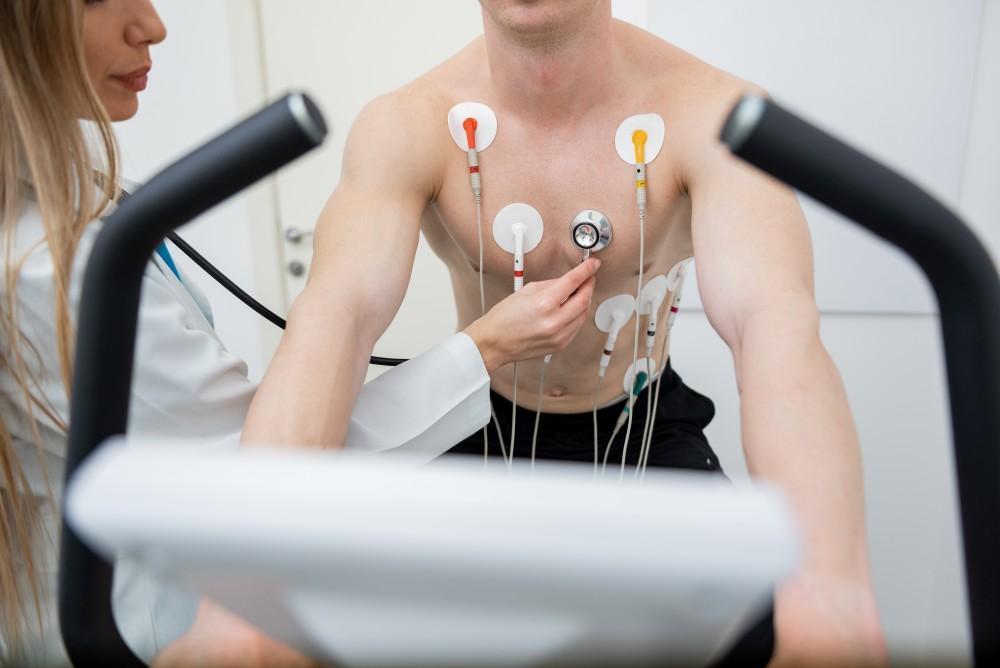
Varicose Veins Aren’t Just a Cosmetic Issue

23 percent of Americans suffer from unsightly varicose veins. Are you one of them? For most people, the bulging, twisted appearance of these bumpy veins is their top concern. Which leads them to cover up their legs and avoid places where their legs are exposed, like the beach or pool.
Even though it might seem like it, varicose veins aren’t just a cosmetic issue. These enlarged veins located just under the surface of your skin can negatively impact your health and wellbeing.
Henock Saint-Jacques, MD, FACC, and the care team at Harlem Cardiology in East Harlem, New York, know the dangers of varicose veins. Dr. Saint-Jacques can eliminate these troublesome veins using the latest advances in technology.
Read on to learn more about varicose veins and why they aren’t just a cosmetic issue.
What are varicose veins?
Varicose veins are twisted, enlarged veins located just under the skin. They typically appear like purple coils and sometimes bulge out, distending the skin. While any vein near the surface can become a varicose vein, they are most commonly found in your legs.
To help push blood back to your heart, veins use surrounding muscle and a network of one-way valves to prevent backflow. Varicose veins develop when these valves stop working properly and allow blood to pool in the vein.
This makes it difficult for the surrounding muscles to effectively push the blood toward your heart. And because veins closer to the skin’s surface have less muscle support, they are more likely to become varicose.
The result? As more blood pools, veins become dark purple or blue and bulging, often creating a rope-like appearance that can be seen through the skin. Anyone can develop varicose veins, but your risk increases if you are:
- Female
- Middle-aged or older
- Pregnant
- Obese or overweight
- Stand or sit for extended periods
- Have a genetic predisposition
What health problems are related to varicose veins?
Varicose veins may cause pain, problems with mobility, difficulty sitting, swelling, and skin issues. In addition to these aggravating problems, varicose veins can cause serious health conditions.
For example, pooling blood that stops moving through your veins puts you at greater risk of developing a blood clot. These clots increase your risk of stroke, varicosity hemorrhage, or pulmonary embolism.
Pooling blood also increases the risk you’ll develop a leg ulcer. Venous leg ulcers are painful and can be difficult to heal since the affected area isn’t getting adequate blood, increasing your risk for serious infection.
Varicose veins also affect your body’s circulation, making it difficult to move fluid in and out. As a result, you can develop edema, or swelling in your legs and feet, which increases your risk of developing bacterial and fungal infections.
While rare, varicose veins can also weaken the wall of the affected vein. Eventually, as the pooled blood continues to put pressure on the wall, it can break open and cause spontaneous bleeding and even hemorrhaging.
Don’t ignore varicose veins!
Varicose veins are more than a cosmetic concern. Dr. Saint-Jacques and the team at Harlem Cardiology will evaluate your unique situation to determine the best course of treatment for your varicose veins.
Don’t wait. Contact Dr. Saint-Jacques at the Madison Avenue office of Harlem Cardiology and request an appointment to start eradicating your varicose veins today.
You Might Also Enjoy...


Is It Possible to Lower My Blood Pressure Naturally or Do I Need Medicine?

What You Can Do Now to Prevent a Stroke Later in Life

3 Noninvasive Tests That Measure the Health of Your Heart

What Can I Do About My Varicose Veins?


